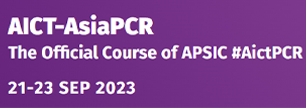


 Article Link
Article Link

Short-term and long-term clinical outcomes of rotational atherectomy in resistant chronic total occlusion
Huang WC, Teng HI, Chan WL et al.
KEYWORDS
calcification; chronic total occlusion; coronary artery disease; rotational atherectomy
OBJECTIVES - To evaluate the short- and long-term clinical outcomes of RA in CTO coronary intervention.
BACKGROUND - The application of rotational atherectomy (RA) may improve the success rate of percutaneous recanalization of chronic total occlusion (CTO) with heavy calcification.
METHODS - From January 2011 to September 2014, we enrolled 285 patients with CTO who underwent successful percutaneous coronary intervention (PCI). Resistant CTO lesions were defined as those with heavy calcifications as well as those that no devices are able to pass after guide wire crossing.
RESULTS - All patients with resistant CTO lesions (n = 26) were successfully treated by RA without major complications, except 1 patient complicated with coronary perforation and treated by surgery successfully (success rate: RA group vs non-RA group: 96.2%, vs 89.5%, P = 0.038). Compared to the non-RA group, the patients in the RA group were older (P = 0.028), had higher J-CTO scores (P = 0.001), and needed longer stents (P = 0.001). All patients were followed up for a mean period of 3.4 ± 2.3 years, and the 1-year and long-term clinical outcomes of the RA group were excellent and comparable with those not receiving RA in multivariate analysis adjusted for multiple variables.
CONCLUSION - The treatment of RA is safe and feasible for resistant CTO lesions with heavy calcification. The short- and long-term clinical outcomes of the treatment of RA were excellent and comparable with those not needing RA for CTO PCI.
© 2018, Wiley Periodicals, Inc.




















